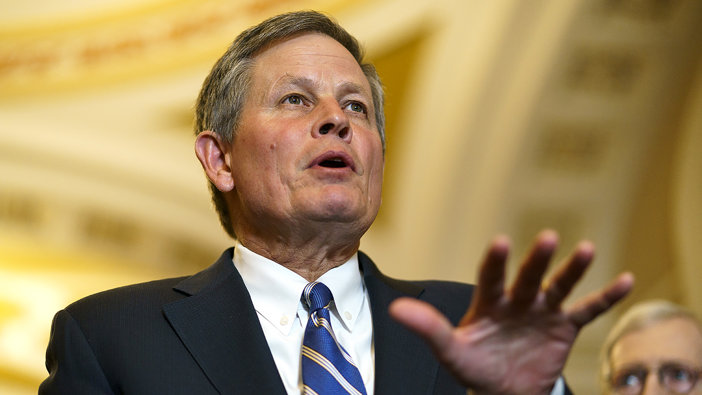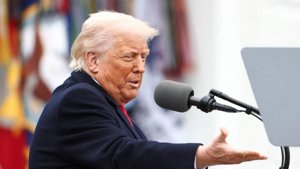
Daines Urges Regime Change in Iran for Middle East Peace
Senator Steve Daines calls for regime change in Iran, warning the ceasefire with Israel is only temporary without leadership reform.
Senator Warns Ceasefire Is Only a Pause Without Lasting Solution
Senator Steve Daines of Montana has issued a stark warning about the fragile ceasefire between Iran and Israel, emphasizing that true peace in the region is unlikely without a change in Iran's leadership. The Republican lawmaker, who serves on the Senate Foreign Relations Committee, expressed cautious optimism that the recent truce—which followed a brief but intense period of hostilities—would hold. However, Daines argued that Iran’s longstanding refusal to recognize Israel’s legitimacy poses a fundamental obstacle to a permanent resolution.
“I’m of the opinion that the longer-term solution in Iran is going to be regime change,” Daines stated, underlining his view that no genuine peace is possible while the current government refuses to acknowledge Israel’s right to exist. He added, “Until you have a regime that recognizes the legitimacy of the Jewish state of Israel and their right to exist, and believes that Israel should not be destroyed, I don't think we're going to bring the peace that we need.”
History and Risks of Regime Change
Daines’s comments come as President Donald Trump prepares to meet Israeli Prime Minister Benjamin Netanyahu at the White House to discuss ongoing regional security. The senator referenced past U.S. involvement in Iran, notably the 1953 coup that removed Prime Minister Mohammad Mosaddegh and installed Shah Mohammad Reza Pahlavi, as well as the 1979 Islamic Revolution that brought the current regime to power. Daines was clear that any future change must be driven internally by the Iranian people, not imposed from outside.
“Regime change is risky because you may end up with something worse than what you have,” Daines cautioned. “Now in this case, the bar is set awfully low in Iran, but you could get an equivalent type of philosophy, or maybe something a little better.” He stressed that legitimacy for a new government can only come if it is “born from within,” not by external force.
He also warned that the current ceasefire is only a temporary measure, saying, “A ceasefire is not the end. It’s a means. A ceasefire just says, ‘OK, we're still at war, but we're not going to shoot for a while.’” Lasting peace, he believes, will only come when Iranian leaders recognize Israel as a Jewish state.
Concerns Over Regional and Global Security
Daines cautioned that as long as Iran’s regime or any replacement with similar ideology refuses to acknowledge Israel’s right to exist, the risk of future conflict—including the development and use of nuclear weapons—remains high. He also underscored the importance of Iran aligning more closely with Western nations, rather than powers like China, Russia, or North Korea, in order to achieve real progress and security for the region.
While a bipartisan effort is underway in Congress to bolster Israel’s defenses, including proposals to supply advanced weaponry, most lawmakers, including Daines, agree that U.S.-driven regime change is not the answer. Instead, they stress support for diplomatic solutions and reforms that arise from within Iran itself.
As regional leaders and international partners prepare for upcoming talks, Daines’s call for regime change highlights the ongoing debate in Washington over the path to lasting peace in the Middle East. The senator’s message underscores that while ceasefires can pause hostilities, only a transformation in leadership and ideology in Tehran can bring true stability to the region.






